Committee to guide foundation’s research program
NEW YORK, NY (July 11, 2022) – The Lung Cancer Research Foundation (LCRF) is pleased to announce the appointment of a select group of its Scientific Advisory Board members to a newly-created Scientific Executive Committee. This committee is tasked with developing, assessing, and implementing a strategic research roadmap to guide LCRF’s research investment and will identify areas of unmet need. In addition, these members will advise LCRF on collaboration opportunities with multiple stakeholders in lung cancer, including but not limited to pharmaceutical and business partners whose missions align with that of LCRF.
“This committee is comprised of leaders in lung cancer research, treatment, and advocacy,” commented Katerina Politi, PhD, Associate Professor of Pathology and Internal Medicine at Yale School of Medicine and chair of LCRF’s Scientific Advisory Board. “LCRF’s research program will benefit greatly from these experts as we develop our strategic objectives in research investment with a focus on serving lung cancer patients’ most pressing needs.”
LCRF’s Scientific Executive Committee members:
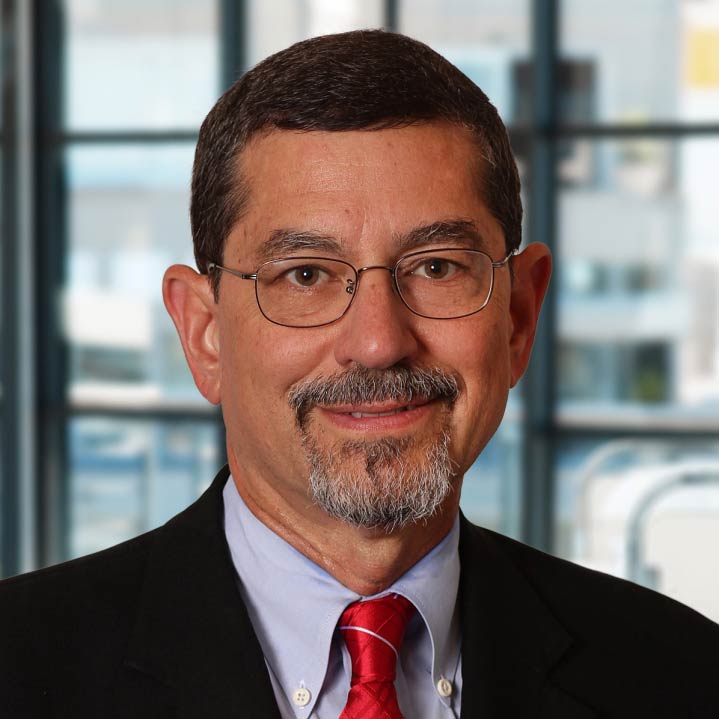
David P. Carbone, MD, PhD
Professor, Medical Oncology, Molecular, Cellular, and Developmental Biology Graduate Program, The Ohio State University Comprehensive Cancer Center
Dr. David Carbone is Professor of Internal Medicine, Director of the James Thoracic Oncology Center at the OSUMC and holds the Barbara J. Bonner Chair in Lung Research. He graduated summa cum laude from Amherst College in 1977 and received an MD and PhD in Molecular Biology and Genetics at Johns Hopkins University in 1985. He then did an Internal Medicine internship and residency at Johns Hopkins Hospital through 1988 followed by a Medical Oncology fellowship at the National Cancer Institute in Bethesda, MD. At Vanderbilt he was Professor of Medicine, Cell Biology, and Cancer Biology, and Director of the Thoracic/Head and Neck Cancer Program, Director and Principal Investigator of the Vanderbilt Specialized Program of Research Excellence (SPORE) in Lung Cancer for 11 years and PI of the Strategic Partnering to Evaluate Cancer Signatures (SPECS) in Lung Cancer UO1 consortium. He was recruited to The Ohio State University in 2012 to direct the James Thoracic Oncology Center.
Dr. Carbone’s research interests, grant support and publications have been focused on lung cancer, and specifically lung cancer genetics, cancer immunotherapy, and tumor-associated immunosuppression mechanisms. He has over 300 peer-reviewed publications, books and review articles, has served on several NCI grant review panels, including the clinical program project parent committee, and has continuous NCI funding since early in his career. He has served on the Board of Scientific Counselors for the NCI and is Past President of the International Association for the Study of Lung Cancer (IASLC). Dr. Carbone is a long-standing member of LCRF’s Scientific Advisory Board.

Colleen Conner Ziegler
LCRF Board of Directors and lung cancer survivor
Colleen Conner Ziegler, a lung cancer survivor and active patient advocate, was diagnosed in May 2015 at the age of 58 with Stage IV ALK positive non-small cell lung cancer. She began, and is currently receiving, alectinib as her first line of treatment and recognizes that research has made her treatment possible. After a 22-year career in the pharmaceutical industry, Ms. Conner Ziegler served in a variety of community-focused endeavors, including service on several boards of directors and advisory boards. Her primary focus prior to her diagnosis was on children’s education as well as woman’s health issues. Following her lung cancer diagnosis, she turned her focus to lung cancer advocacy. She is a current member of LCRF’s Board of Directors, serves on the Department of Defense Lung Cancer Research Program advisory committee, and has co-founded, and remains active with, several patient-focused lung cancer advocacy organizations focused on ALK-positive lung cancer research. Ms. Conner Ziegler recently joined LCRF’s Scientific Advisory Board.
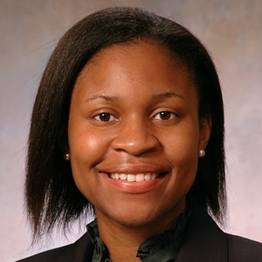
Ibiayi Dagogo-Jack, MD
Assistant Professor of Medicine (Harvard Medical School), Thoracic Oncologist, Massachusetts General Hospital
Dr. Ibiayi Dagogo-Jack received her bachelor’s degree in Biological Sciences from Vanderbilt University (2007). She received her medical degree from the University of Chicago Pritzker School of Medicine (2011). Dr. Dagogo-Jack trained in internal medicine at Brigham and Women’s Hospital through 2014. Following residency, she completed a hematology/oncology fellowship in the combined Massachusetts General Hospital/Dana Farber Cancer Institute program in 2017, after which she joined the faculty as a medical oncologist focused on thoracic cancers. Her research is focused on understanding mechanisms underlying resistance to lung cancer targeted therapies and developing clinical trials to evaluate novel combinations in lung cancer and mesothelioma. Notably, Dr. Dagogo-Jack’s research team has led studies characterizing resistance to treatments for fusion-driven lung cancer, including strategies to overcome resistance to next- generation ALK inhibitors. Dr. Dagogo-Jack has recently become a member of LCRF’s Scientific Advisory Board.

Marc Ladanyi, MD
Chief, Molecular Diagnostics Service; William J. Ruane Chair in Molecular Oncology, Memorial Sloan Kettering Cancer Center
Dr. Marc Ladanyi is Attending Pathologist & Chief of the Molecular Diagnostics Service and Member and Laboratory Head in the Human Oncology & Pathogenesis Program at Memorial Sloan Kettering Cancer Center (MSKCC). As Chief of Molecular Diagnostics Service at MSKCC, he pioneered clinical testing for EGFR mutations in lung cancer starting in 2004 and now oversees large scale prospective clinical genotyping efforts based on a variety of next-generation sequencing technologies including the MSK-IMPACT and MSK-ACCESS assays, part of a center-wide precision medicine strategy. His research laboratory studies the genomics and therapeutic targets of lung adenocarcinoma, mesothelioma, and several types of sarcoma. Dr Ladanyi also played a major role in The Cancer Genome Atlas (TCGA) being on the analysis/writing teams for the TCGA Network papers on squamous lung cancer and lung adenocarcinoma and co-leading the teams that assembled the pleural mesothelioma and soft tissue sarcoma TCGA reports. Dr. Ladanyi is a long-standing member of LCRF’s Scientific Advisory Board.
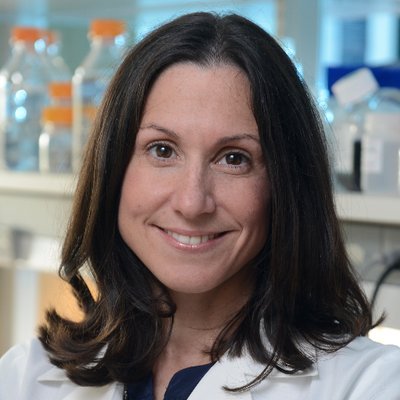
Kathryn O’Donnell, PhD
Associate Professor, Molecular Biology, UT Southwestern
Dr. Kathryn O’Donnell received her BS in Genetics from Cornell University and her PhD in Human Genetics from Johns Hopkins School of Medicine (2005). In 2011, Dr. O’Donnell was recruited to UT Southwestern Medical Center as an Assistant Professor in the Department of Molecular Biology and received a Cancer Prevention and Research Institute of Texas (CPRIT) Recruitment of First-Time Tenure-Track Faculty Member Award. Her current work is focused on understanding the mechanisms that contribute to lung tumor initiation, progression, and metastasis and applying insights from these studies towards the development of new therapies for lung cancer. Several projects investigate the regulation and function of oncogenic cell surface receptors using molecular and biochemical studies, functional genetics, and mouse models. Her research is supported by awards from the National Cancer Institute (NCI), the Sidney Kimmel Foundation, the LUNGevity Foundation, the Welch Foundation, and CPRIT. Dr. O’Donnell recently became a member of LCRF’s Scientific Advisory Board.
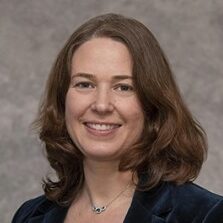
Katerina Politi, PhD
Associate Professor of Pathology and Internal Medicine at Yale School of Medicine and chair of LCRF’s Scientific Advisory Board
Dr. Politi studied Biology at the University of Pavia in Italy. She then moved to New York, where she obtained her PhD in Genetics and Development working with Argiris Efstratiadis at Columbia University. Following graduate school, she joined Harold Varmus’s lab at Memorial Sloan-Kettering Cancer Center and began her work on the molecular basis of lung cancer. Currently, she is an Associate Professor in the Departments of Pathology and Internal Medicine (Section of Medical Oncology) at the Yale School of Medicine and a member of the Yale Cancer Center where she co-leads the Cancer Signaling Networks Research Program.
Dr. Politi’s research focuses on understanding mechanisms of tumor progression and therapeutic sensitivity and resistance in lung cancer with a particular emphasis on targeted therapies and immunotherapies. Dr. Katerina Politi is a two-time LCRF grant recipient. In 2010, she received a grant to study mechanisms of resistance to targeted therapies. In 2013, her LCRF-funded project again investigated resistance to targeted therapies, this time focusing on understanding the influence of tumor cell-of-origin and heterogeneity on acquired resistance. Dr. Politi serves on LCRF’s Board of Directors and is the chair of LCRF’s Scientific Advisory Board.
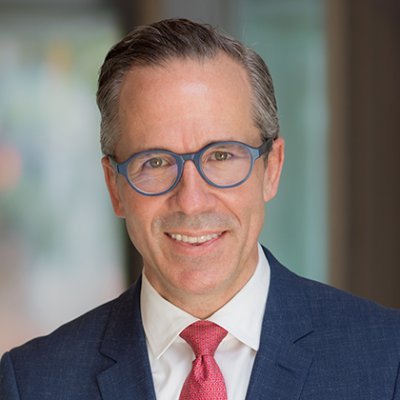
Brendon M. Stiles, MD
Professor, Department of Cardiothoracic & Vascular Surgery, Chief, Division of Thoracic Surgery & Surgical Oncology, Montefiore-Einstein Cancer Center; Vice Chair, LCRF Board of Directors; Vice Chair, LCRF Scientific Advisory Board
Dr. Brendon Stiles is Professor and Chief, Thoracic Surgery and Surgical Oncology, Department of Cardiothoracic & Vascular Surgery at Montefiore-Einstein. Dr. Stiles is also the Associate Director for Surgical Services in the Montefiore-Einstein Cancer Center. His clinical focus is on lung cancer screening, on overcoming disparities in cancer care, and on the multidisciplinary treatment of lung and esophageal cancer patients. Dr. Stiles is also actively involved in translational and basic laboratory research in lung cancer, with a particular focus on neoadjuvant immunotherapy and on identifying and targeting new pathways which contribute to immune suppression in lung tumors. At the Albert Einstein College of Medicine, Dr. Stiles is the Co-PI of the T32 Surgical Oncology Training Program and is the Director of the Lung Cancer Dissemination and Metastasis research team in the Integrated Imaging Program for Cancer Research. Dr. Stiles currently serves as vice chair of both LCRF’s Board of Directors and Scientific Advisory Board, having served as chair of the LCRF Board of Directors from 2017 – 2021.
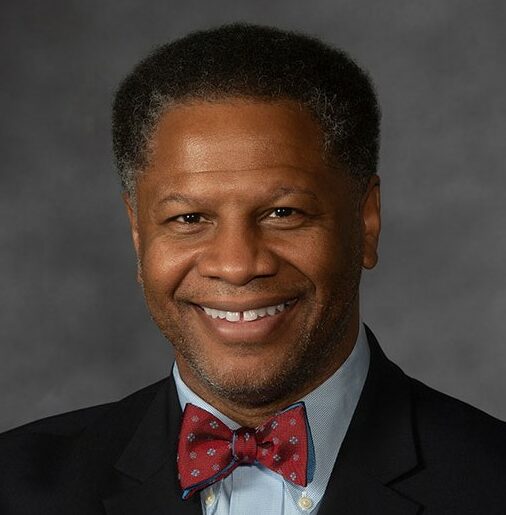
Robert A. Winn, MD
Director & Lipman Chair in Oncology, VCU Massey Cancer Center; Senior Associate Dean for Cancer Innovation and Professor Of Pulmonary Disease and Critical Care Medicine, VCU School Of Medicine
As director of Virginia Commonwealth University Massey Cancer Center, Robert A. Winn, M.D., is leading the nation in establishing a 21st-century model for promoting diversity, equity, and inclusion in the oncology workforce, optimizing cancer health care outcomes for all and spearheading interdisciplinary approaches to cancer disparities research. Just the fourth director of Massey since its 1975 National Cancer Institute designation, Dr. Winn oversees a center comprised of more than 140 scientists and clinical investigators. Leading by example, he is nationally recognized for his community engagement efforts in promoting new approaches to building trust among populations previously disenfranchised from healthcare or excluded or abused in research.
Dr. Winn is committed to both community-engaged research and research focused on eliminating health disparities. He is principal investigator on several large multi-institutional initiatives, including a team science award from Stand Up To Cancer, a National Cancer Institute (NCI)-funded Planning SPORE focused on Lung Cancer Health Equity and an NCI-funded institutional partnership award fostering cancer disparities research and career development collaboration between Massey and Virginia State University, a Historically Black University located in Petersburg, VA – a city that has faced health and education inequities for generations. Dr. Winn also manages his own basic and translational research laboratory which has been supported by multiple NIH and Veterans Affairs Merit awards for nearly two decades. His laboratory focuses on the molecular mechanisms and novel therapeutic approaches for lung cancer and the confluence between societal and biological factors which may lead to disparities. Dr. Winn recently became a member of LCRF’s Scientific Advisory Board.
# # #
About the Lung Cancer Research Foundation (LCRF)
The Lung Cancer Research Foundation® (LCRF) is the leading nonprofit organization focused on funding innovative, high-reward research with the potential to extend survival and improve quality of life for people with lung cancer. LCRF’s mission is to improve lung cancer outcomes by funding research for the prevention, diagnosis, treatment, and cure of lung cancer. To date, LCRF has funded 394 research grants, totaling nearly $39 million, the highest amount provided by a nonprofit organization dedicated to funding lung cancer research. For more information, visit LCRF.org.
